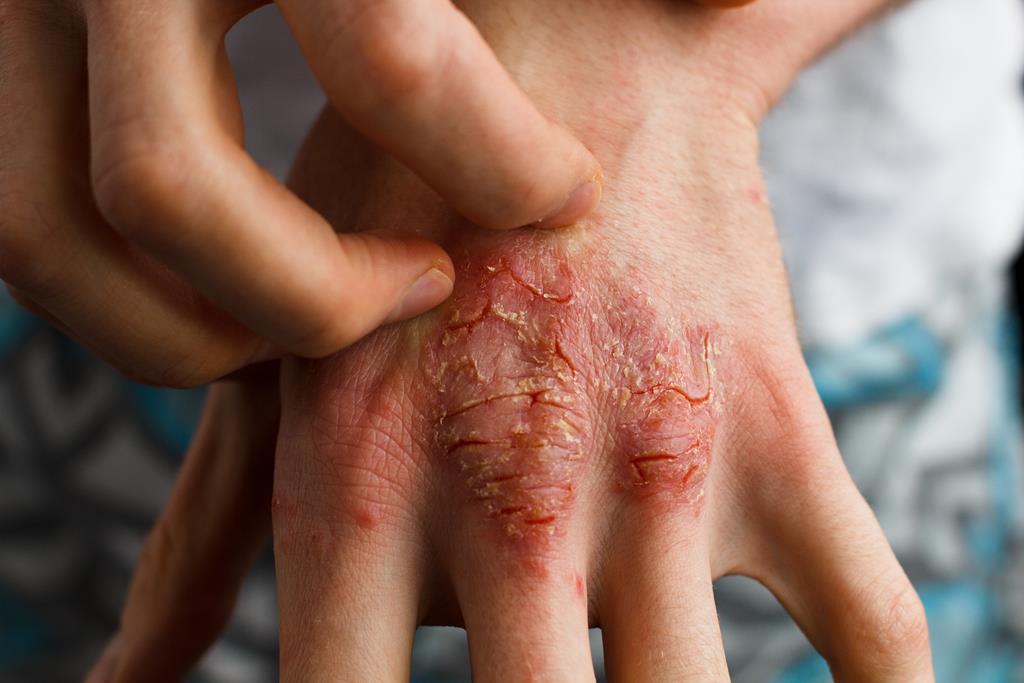Rose essential oil is the oil extracted from the petals of Damascus rose (Rosa damascene) by steam distillation. It's one of the most expensive essential oils in the world since it takes about 10 kgs of rose petals (approx. 10,000 to 12,000 petals) to make 5 ml of pure rose oil. Rose essential oil contains a host of useful therapeutic compounds like citronella, geraniol, nerol and nonadecane among others. These compounds are good for our body as they contain healing properties that provide numerous benefits for beauty and general wellbeing.
Benefits Of Rose Oil
Benefits of rose essential oil are not limited to cosmetic purposes but also extend to the wellness since it is rich in antioxidants and has anti-microbial, antiseptic and anti-inflammatory properties.
1. Relieves Symptoms Of Depression

Rose oil has a pleasant aroma due to the active ingredient beta-damascenone. The aroma helps to calm the nerves and uplifts the mood. Which is why it helps people suffering from low mood and depression.
How To Use
- Mix a few drops of rose oil equally with lavender oil and put them in an oil diffuser either at your workplace or at home before bed.
Also Read : 10 Effective Essential Oils For Depression
2. Treats Wounds
Rose oil has antiseptic properties that keep the wound from festering. It heals the wound and also reduces the inflammation and itching of the wound due to its anti-inflammatory properties. Similarly, it can also be used for minor cuts and burns.
How To Use
- Dilute it with a carrier oil like coconut oil and apply gently to the affected area.
- Continue to do this until the wound heals and inflammation subsides.
3. Treats Acne

Rose oil can be utilized to treat acne. It nourishes your skin and also has anti-microbial properties which get rid of acne-causing bacteria and cleans the clogged pores and help it to combat acne.
How To Use
- Mix a few drops of rose oil with castor oil.
- Apply the mixture topically to the affected area.
- Let it sit for 20-30 minutes and wash your face with lukewarm water.
- Pat dry your face.
You can also check out Anveya's 24k Gold Goodbye Acne Kit. It comes with a cleanser and serum containing Azelaic Acid, Niacinamide, Tea tree oil, and other ingredients immensely effective in fighting acne.
ANVEYA 24K GOLD GOODBYE ACNE KIT
- Helps in skin renewal
- Fights against acne causing bacteria
- Control sebum secretion
- Calms and soothes active acne
- Works on acne scarring and blemishes
4. Improves Skin Quality
Rose oil has been widely used for skin care since its rich in antioxidants. It is a natural Cicatrices and has astringent properties. It can be used to treat stretch marks boils, acne and wrinkles.
How To Use
- Apply a few drops of diluted rose oil regularly to the affected spots on your skin.
5. Menstrual Cramp Relief

Rose oil has been proven to ease dysmenorrhea, which refers to painful menstrual cramps. It is a natural antispasmodic meaning it helps to soothe muscle spasms and relieve menstrual cramps.
How To Use
- Mix Rose oil with a carrier oil and massage the abdomen to relieve the pain.
6. Acts As A Moisturizer
It’s generally considered a good practice to avoid commercially produced inorganic cosmetics since they may have a negative effect on your skin in the long-term. Rose essential oil can instead be used as a moisturizer and has the benefit of being completely natural.
How To Use
- Mix a few drops of rose oil with a carrier oil to dilute it.
- Gently apply this concoction to your face, neck, hands and limbs
- You can use this regularly for a moisturising effect on your skin.
7. Removes Dark Circles

Regular use of rose essential oil benefits your skin, this is because of its repairing effect due to it being rich in antioxidants and hydrate your skin due to its water retention properties. This is the reason why rose oil can also be used to remove dark circles beneath your eyes.
How To Use
- Dilute the rose oil with a carrier oil and apply sparingly beneath your eyes.
- Be careful not to add any oil directly onto your eye.
Also Read : Dark Circles - Skincare Experts Reveal about the Causes and Ways to Reduce It!
8. Treats Headaches
One of the benefits of rose essential oil is that it can be used to relieve headaches. Due to its pleasing aroma, it promotes positive thoughts and helps you relax.
How To Use
- Use a few drops of rose oil either directly or equally mixed with lavender oil in an oil diffuser.
9. Improve Hair Growth

Use of rose essential oil extends beyond skin care, it can also be used for improving the health of your hair and promoting its growth. Rose oil is antiseptic in nature and helps get rid of dirt, chemical deposits and excess oil stuck on the scalp and nourish the hair follicles and contribute towards healthy hair growth.
How To Use
- Heat 2 tablespoons of coconut oil and 3 teaspoons of shea butter together.
- To this mixture add 1 teaspoon of olive oil and 1 teaspoon of pure Castille soap along with 3 drops of rose oil.
- Make this mixture fluffy by adding 2 more teaspoons of shea butter and whipping it continuously.
- Apply this your hair and scalp and let it sit for an hour.
- Later, wash your hair with a natural shampoo and pat dry the hair.
10. Treat Hair Loss
Rose essential oil can also be used to resist hair loss since it has a nourishing effect on your hair. Rose oil is antiviral and antifungal which to treat the scalp of any infections, get rid of dandruff and strengthen the hair roots and aid towards controlling hair loss.
How To Use
- Use the rose oil hair conditioner as mentioned previously.
- Alternatively, spray your hair with diluted rose essential oil while running your hands through your hair.
How To Make Rose Oil At Home?
Rose oil is one of the most expensive essential oils out there. But you can actually make some of your own at home. While making pure rose oil at home will be very difficult building your own diluted version of rose oil at home is possible.
Ingredients
- Organically grown roses which are free of pesticides and insecticides.
- A cup of either jojoba or grapeseed oil (look for a carrier oil which does not have a strong odour).
- Water
- Cheesecloth
How To Make Rose Oil?
- Take a cup of jojoba or grapeseed oil in a small glass jar.
- Crush rose petals thoroughly and add them to the oil. Swirl to mix.
- Place the jar in hot water and after the water cools off place the jar in a warm place (maybe under the sun) for at least 24 hours.
- Use the cheesecloth to strain the oil. Press the petals firmly to extract as much rose oil as possible.
- If you need a stronger rose oil to repeat the above steps with fresh rose petals. You can repeat as many as 5 to 6 times to get the desired strength of rose oil.
- It’s important to store the oil in a dark tinted bottle covered by a dark lid. This will prevent sunlight from affecting the properties of the rose oil.
Also Read : 7 Benefits of Rose Oil (Infographic)
Preventive Tips For Using Rose Oil
- Rose essential oil should not be consumed internally.
- Rose oil is an emmenagogue which means that it stimulates menstrual flow hence it should not be used by pregnant women.
- Pure rose essential oil should not be used directly on the skin since it can cause skin irritation. Instead, it should always be diluted using a carrier oil before use.
- Rose essential oil should not be used excessively since it’s actually absorbed through the skin and excessive use can have damaging effects. Always follow a recipe of dilution as per a reputed authority.
- Before using rose essential oil for the first time perform a skin patch test to see if you are allergic or sensitive to the oil.
Disclaimer: All the content on anveya.com/blogs is solely for information. It is not intended to be a substitute for professional medical advice, diagnosis or treatment. Always seek the advice of your physician or a qualified health care provider. The information, suggestion or remedies mentioned on this site are provided without warranty of any kind, whether express or implied.




